
The Telugu Language - The Italian of the East (Language Profile I)
Last updated: Sunday November 20th, 2022
Report this blog
Telugu
Today I'm going to talk about my native language!
So let's say you're taking a quiz about languages. You have one answer remaining and you're going through all the obvious ones you might have missed in your head. The time runs out, and you see Telugu, and think, Oh great, one of those obscure Indian languages.
Well apparently this happens a lot because I often see Telugu rank as one of the least guessed answers in language quizzes which makes me very sad 😢.
Maybe it doesn't exactly happen like that, but Telugu isn't a very well known language for how common, yet unique, and beautiful it is. So let's start with some basic information.
Basic Stats
Telugu is spoken in South India in the states of Andhra Pradesh and Telangana, which used to be a single Telugu-speaking state of Andhra Pradesh.
Telugu has 82 million native speakers, making it the 11th most spoken language in the world by native speakers, more than languages like French, Korean, and Turkish. This also makes it the most spoken Dravidian language, and the 4th most spoken language in India. Including all speakers, the number is 96 million, but the rank drops to 15th place, still more than Turkish and Korean, but way less than French and German, since many non-native speakers learn those languages.
It is also the fastest growing immigrant language in the United States, and the 2020 election had Telugu ballots in some areas for the first time!
Telugu is the 4th largest Indian language in the US, having 415K speakers, increasing by about 350K in the last 2 decades.
There are large Telugu-American communities in Texas, Chicago, Virginia, and especially New Jersey and California including me
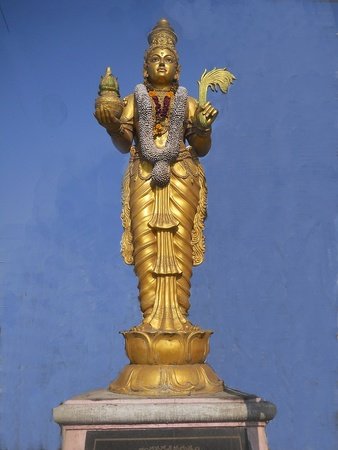
Dravidian Languages
How to make a South Indian mad:
"Oh, you're from India, you speak Indian, right? I mean Hindi, that's what it's called right? Oh, you speak Telugu (or another Dravidian language), that must be some dialect of Hindi, right, or it must at least be related, right"
*TRIGGERED*
Please don't say that
Hopefully you know that the many languages of India are very different and not intelligible, sometimes being compared to Chinese languages. I guess the comparison works for North India, since they are different languages from a single family, but the South Indian languages are part of a unique family called the Dravidian Family.
The Dravidian family is a distinct family with no genetic relations to any other families, and it is one of the world's largest language families despite its small size by number of languages and area. It is focused in South India, where the 4 major Dravidian languages are spoken: Telugu, Tamil, Kannada, and Malayalam (Tamil is also spoken in Sri Lanka). There are many smaller Dravidian languages spoken in and out of South India, such as Tulu, spoken by some on the coast of Karnataka, rather than Kannada. Outside of South India, most of the Dravidian languages are tribal languages, such as Gondi and Kurukh. There's even a Dravidian language spoken in Afghanistan! It's called Brahui, and it is spoken in the Balochistan region in both Pakistan and Afghanistan. It has only 3 million speakers and many people are switching to Balochi, making it endangered.
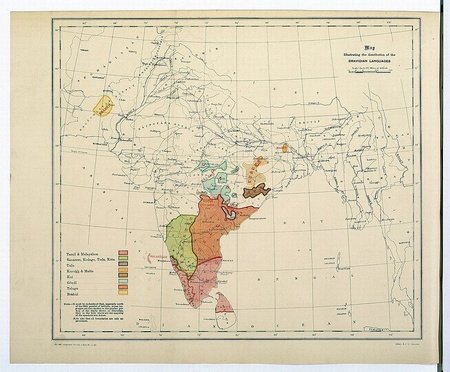
Anyways, the Dravidian languages are split into 4 creatively named branches: South, South-Central, Central, and North. The major ones are South and South-Central. Here's a quick list showing some of the languages in each of them.
SOUTH:
Tamil
Kannada
Malayalam
Tulu
Byari
SOUTH-CENTRAL:
Telugu
Gondi
Kui
Koya
CENTRAL:
Kolami
Duruwa
Ollari
NORTH:
Brahui
Malto
Kurukh
As you can see, most of the major ones are in the Southern branch, except for Telugu, which essentially makes it the most different from the other 3. However, Kannada would be the most similar.
Though the Dravidian family is unrelated to other language families, there are some (widely rejected) theories linking it to the extinct Elamite language, the Uralic languages like Hungarian, and Korean and Japanese (which they are actually surprisingly similar to). Although these theories are probably false, it's interesting that they have some similarities. Maybe I'll make another blog about that (every time I post a blog, I get ideas for 5 more).
Okay, enough with statistics and lists, let's talk about Telugu now!
Telugu Script
Telugu is written in a unique Abugida script. If you don't know, Abugida is a certain type of writing system. As opposed to an alphabet, where each letter makes a different vowel or consonant sound and they must be put next to each other to make larger sounds, in an Abugida, there are consonants and vowels that can be combined into a single character, which basically means that each syllable is a separate character. Consonants can also be combined with each other to make clusters. (I should make a blog about writing systems)
The Telugu script is also used to write Gondi, as well as some other smaller languages, and a very similar script is used for Kannada. It used to be a Telugu-Kannada script, until it diverged and they got their own scripts with slight differences.
Telugu also has its own numbers those these aren't used as often nowadays.
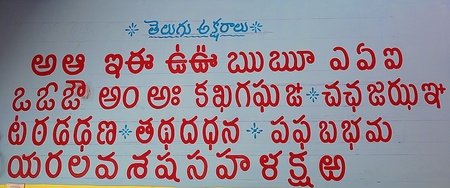
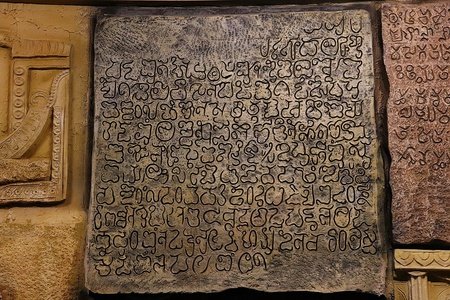
History

The word Telugu likely comes from Trilinga, meaning three Lingas, which are symbols of Lord Shiva. The three Lingas referred to the Lingas in Draksharamam, Kaleswaram, and Srisailam. These three Lingas marked the territory of the Telugu, being located in the Telugu regions of Andhra, Telangana, Rayalaseema, respectively. Some earlier names for the language include Telungu and Tenungu.
As I mentioned, Telugu is a Dravidian language with heavy Sanskrit influence, especially compared to Kannada, Tamil, and Malayalam. We can see this relationship from early on in it's history, and although the relationship between Dravidians and the Indo-Aryans of the north are controversial, (and I will definitely make a video about it some time), linguistically we can make an analogy to English.
English is a Germanic language with mostly Romance vocabulary, despite having a Germanic base and many everyday words being Germanic. Similarly, Telugu is at its core a Dravidian language with basic Dravidian vocabulary, although many more technical terms as well as some basic ones come from Sanskrit.
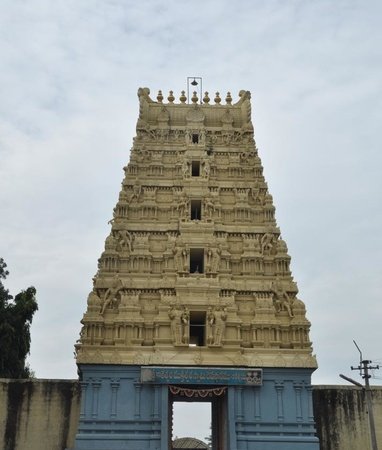
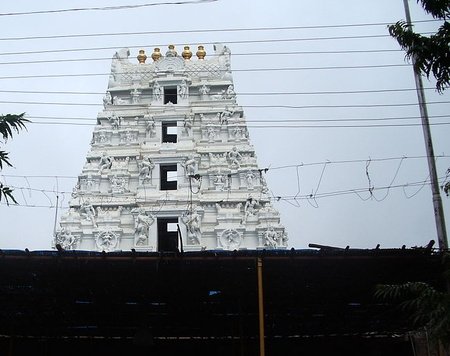
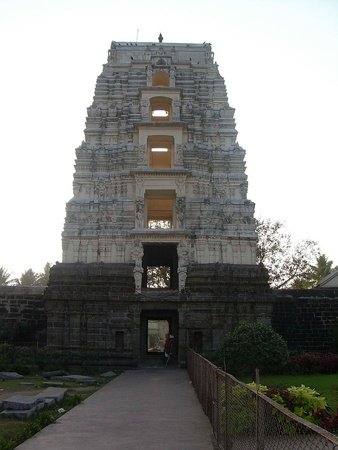
With this context, we can go back to the beginning, with the Proto-Dravidian language. The Proto-Dravidian family originally had 3 branches, South, Central, and North, until the South Branch further split into South and South-Central, the latter of which would become the ancestor of Proto-Telugu. The oldest inscription giving us a clue about Telugu can be found in the village of Bhattiprolu in Guntur district, Andhra Pradesh. This is not only important to Telugu, but Indian linguistics as a whole, as the inscription is the first variation of the Brahmi script found in South India, that is also modified adapted to the Dravidian languages. This "Bhattiprolu Script" was the ancestor of the modern scripts of South India including Telugu. The Bhattiprolu script was from somewhere between the 3rd to 1st century BCE, but Telugu remained a primarily spoken language even after this, under empires such as the Satavahana and Andhra Ikshvaku, with no complete Telugu texts until the next discovery, and the first significant breakthrough for the language, in 575. Before this, there were some discoveries, but I won't bore you breaking down minor inscriptions.
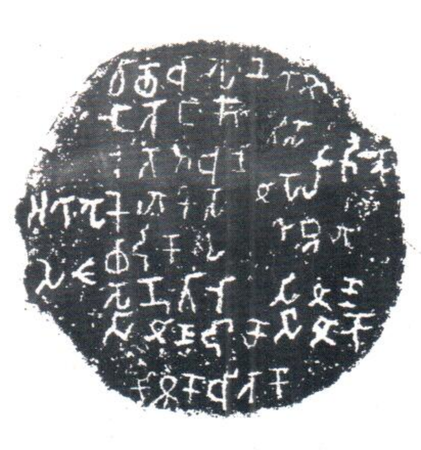
In 575, we would have the 1st fully Telugu inscription found in Kadapa district of the Rayalaseema region, in the village of Erragudipadu. Another major achievement was that the Renati Chodas, one of the Telugu Chodas, a group of kingdoms in the Telugu-Speaking regions, first used Telugu consistently in official contexts. Before this, Prakrit was an official language even though Dravidian dialects were spoken in this area. The Satavahanas did use a form of Dravidian on their coins though. The Renatis in particular ruled over the area of Kadapa district. For the next few centuries, once again nothing of major significance changed, but there was still lots of poetry and developments. The period until the 11th century was known as the Jain Literature Period, and Malliya Rechana, a 10th century Jain poet from Telangana, was one of the first Telugu writers. It was during this time that even more Sanskrit vocabulary entered the language, and the literary language started to diverge from the spoken.
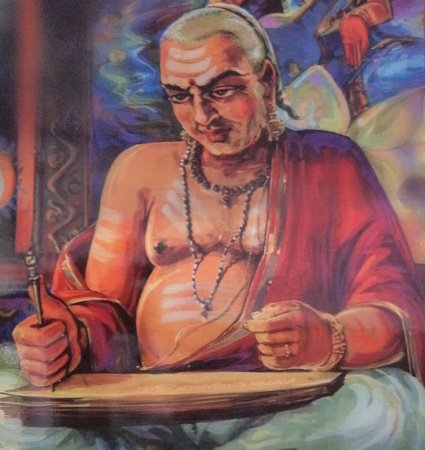
The history really gets interesting when we get into literature starting in the 9th century. The next 400 years would be a great era for the language; Telugu empires, literature, and poetry would flourish. Commencing this period was the great poet Nannayya Bhatta, born in the 11th century in the modern-day East Godavari District of Coastal Andhra. Nannayya is known as the Adikavi, or the First Poet, and is also considered the first member of the Kavitrayam, or the trinity of great Telugu poets. But what was it that made him so great? First of all, he was the Kula-Brahmana, or Family Guru of the Eastern Chalukya Dynasty, or the Chalukyas of Vengi, being the first major empire in the Andhra region, centered around the Godavari delta, the heartland of the Telugus.
Anyway, Nannayya's main achievement tried to took on the incredible task of translating the entire epic of the Mahabharata, arguably one of if not the greatest piece of literature ever, into Telugu. However, he finished only the first 2.5 books, which is still very impressive. But that wasn't his only major achievement, as he wrote another whole book explaining Telugu grammar in Sanskrit! Basically, he had a huge impact on the language, and quite a bit of the modern language can be owed to his works.
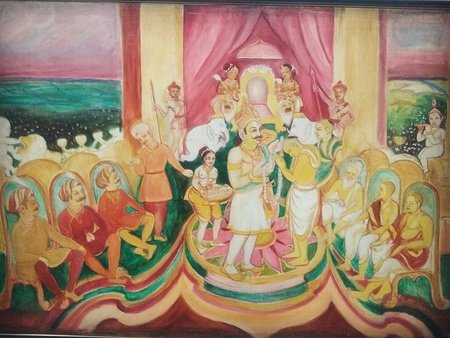
Let's talk more about those Chalukyas. If you know a bit about Indian history, you might be familiar with the Western Chalukyas, who were quite powerful and dominated south-central India for a few decades in this period. The Chalukyas of Vengi, the mainly Telugu dynasty, weren't as powerful, but were the main power of the central Bay of Bengal coast for a while. As you might have expected, the Chalukyas of the west and east had a close relation, with their founders being brothers. The linguistic impact of this was an even close connection between Telugu and Kannada which were already cousin languages. While they might be looked over in Indian history, the Eastern Chalukyas were the first empire to cause a great impact on the Telugu language. But they wouldn't be the last...
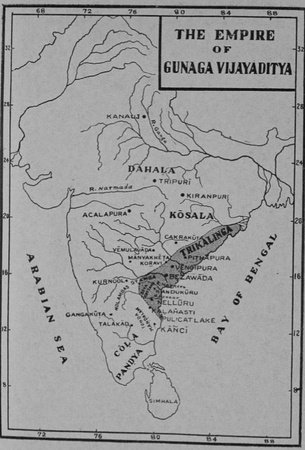
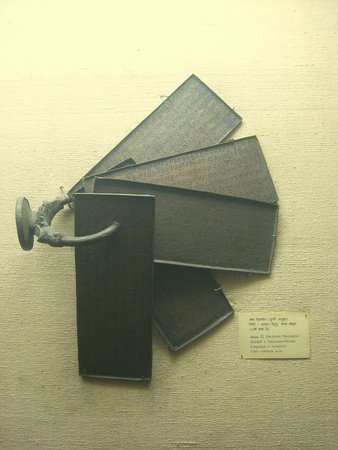
Before we can get to the empire that would have the largest impact on the language, we should also mention another very important Telugu empire, the Kakatiyas of Telangana, which is the northern region in case you forgot, but the Kakatiyas would end up uniting most of the Telugu region, including Andhra, after the Chalukyas.
While the empire itself didn't have the biggest linguistic impact, it was home to the second member of the Kavitrayam, Tikkana. Tikka Sharma, known better as Tikkana, was born in the Nellore district of Southern Andhra in 1205, and finished what Nannayya started. He translated the rest of the Mahabharata (except the 3rd chapter for some reason), completing 15 more chapters. He also composed many other great works that I can't mention all of, including the Nirvachanottara Ramayanamu, his first work, which translated the later part of the Ramayana, India's other great epic. And while Nannayya, brought in Sanskrit vocabulary into the language to express difficult concepts that wouldn't have equivalents in Telugu, which was a spoken language for the longest time, Tikkana went to the root and brought back forgotten Telugu and Dravidian vocabulary. Tikkana also improved Telugu society, stopping the conflicts between Shaivite and Vaishnavite Hindus, and being an important figure in the Kakatiya's empire, being the prime minister of the King of Nellore, which was a tributary of the Kakatiyas. While Nannayya might have started the golden age, Tikkana was the golden age. But don't think it's going to end anytime soon...
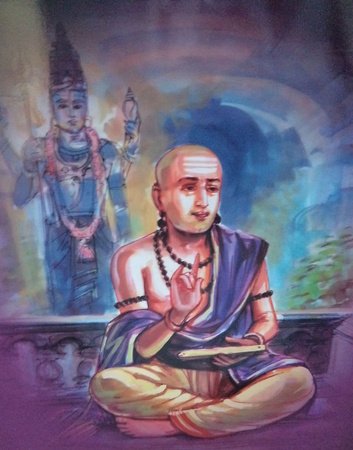
I should mention that this was around the time the Delhi Sultanate was controlling most of Northern India, and the first time they tried to invade the Telugu lands, they were actually defeated by the Kakatiyas. However, the second time the Kakatiyas were defeated and came under the Sultanate's control. However, rebellions would once again weaken the empire, and Andhra would come under native rule again, without much linguistic impact. The final member of the Trinity of Poets was Yerrapragada Yerranna (Yerrapragada is the surname, in Telugu, surnames come first), born in Prakasam District of Andhra in the 14th century, during the Reddy dynasty in the, which was an important dynasty that ruled the region for about a century, though they aren't the most well known. Yerrapragada (he's known more by his surname) was a poet in the court of King Prolaya Vemareddy, the founder of the dynasty, and he would finish the 3rd chapter of the Mahabharata (FINALLY), as well as translate the Narasimhapurana, one of the Puranas, and the Ramayana and Harivamsa, to name a few achievements.
So this is great, right? Well, it will get even better...
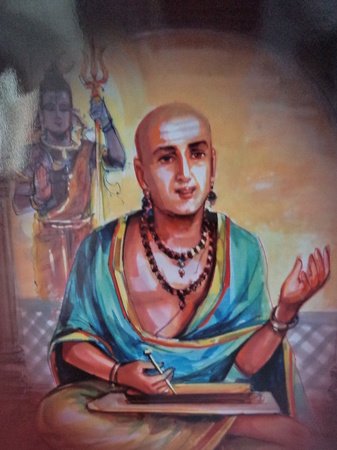
IT'S VIJAYANAGARA TIME! If you have predicted this then you deserve an award because the Vijayanagaras were an AMAZING empire that is not done justice in modern history lessons, and they are personally my favorite historical country (sorry Mauryas and Guptas, you're very close), ruling starting in the 14th century. As incredible as the earlier poets and empires were, this empire was the first empire of India that could claim to have a place on the medieval world stage; their influence not limited by the subcontinent. And this includes their languages, namely Tulu, Kannada and Telugu. While they conquered Tamil and Malayalam parts as well, the empire with its capital in Vijayanagara, now Hampi, on the border of Telugu and Kannada speaking parts, was a big supporter of the usage of both of these cousin languages. Tulu become important because the most important dynasty of the empire was the Tuluva, but now Tulu is a much smaller language. Anyway, as the Vijayanagaras attracted foreign explorers, they also took note of the languages, and this is how Telugu earned it's famous nickname "The Italian of the East". But let's backtrack a bit, and talk about what was happening internally. The Vijayanagara empire was essentially a Telugu-Kannada empire, the official court languages being Telugu and Kannada, and Telugu would gain more prominence in the 16th century, as more warlords came from the Telugu regions. You've already seen all the great poetry, and it would continue into this period.
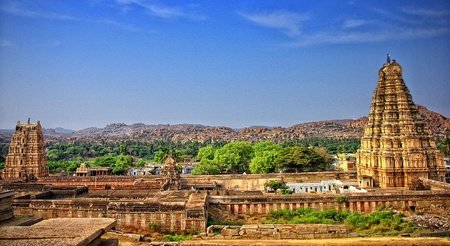
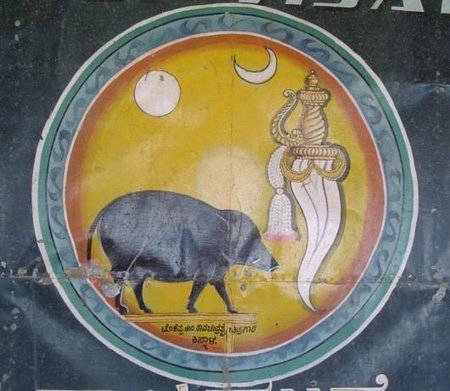
Telugu literature was especially patronized during the rule of Krishna Deva Raya, who is generally considered the greatest leader of the empire. He had 8 famous Telugu poets in his court known as the Ashtadiggajulu, and the main one of them, Allasani Peddanna, who although not part of the original Kavitrayam, attained the title of Andhrakavipitamaha, or the Grandfather of Andhra's poetry (keep in mind that Andhra was also a name for the entire Telugu speaking region, and the coastal region is known more as Coastal Andhra), his most famous achievement being translating as well as expanding the Manu Charitram, a part of the Skanda Purana (this is probably really confusing if you're not familiar with Hindu literature), being a major example of a Prabandha, a form of fictional original Telugu poetry. Peddanna was also given countless honors by the king. All of the Ashtadiggajulu had made great achievements, and I can't mention all of them, but another famous one was Tenali Ramakrishna, who is also known for the folk tales about his wit, and the only one of the 8 who was from Coastal Andhra, the rest being from Rayalaseema.
As well as giving much support to the poets of his empire, King Krishna Deva Raya was also a very significant Telugu poet himself! He wrote an original Telugu epic known as as the Amuktamalyada, about the marriage of Lord Ranganayaka and Goddess Andal. There are so many other things I could mention. There are so many great poets I failed to mention, and the Vijayanagara empire and the Telugu poets of this time deserve multiple blogs and videos in their own right. But alas, this is just an overview, so I must move on.This is generally considered the golden age, but I think the centuries before it also count as the build-up to it.
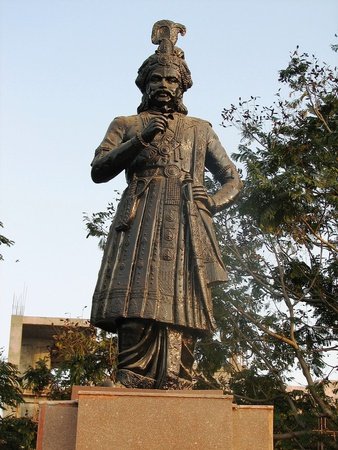
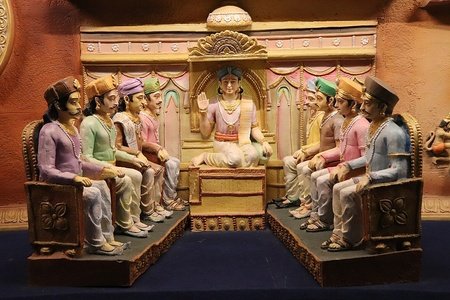
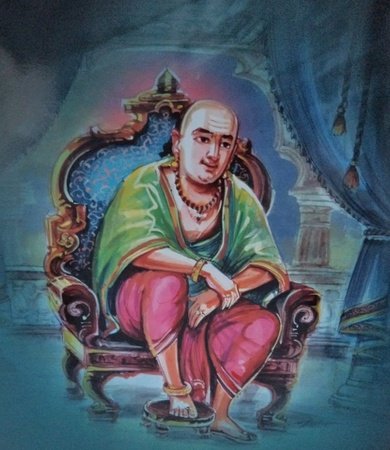
BUT THAT'S NOT ALL!
Telugu would get its first major exposure to Europeans, thanks to this great empire. Many explorers from all over European, Arab, and Persian worlds visited, hearing of a rich empire in India I'll make a video about that probably, and along with the great cities and wealth, would also learn of the beautiful languages. The most famous admiration of the language is the nickname "The Italian of the East" which was commonly used by British writers in the 19th century, but is usually attributed to the Venetian explorer Niccolò de' Conti, and he was Italian, so you know he's serious lol
This referred to the sweetness and the similar sounds caused by the fact that both languages have words that end exclusively in vowels.
*conspiracy theory mode* What if Italians are actually Telugu? What if it is actually Itaalangana? What if the Roman Empire was the Rajamuhndry Empire?? Was Julius Caesar Jolanna Kaijuri??? Was Mussolini Mussaalanna? Is Naples Napulipatnam? Is Milan Milanabad?? Is Venice Venicherla??? *conspiracy theory mode*
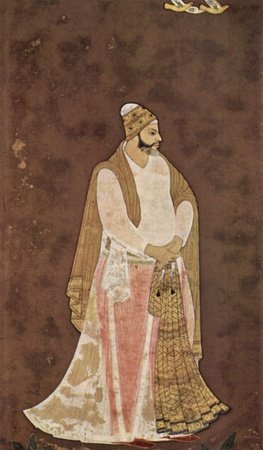
However, the Vijayanagara empire wouldn't last forever. The Bahmani Sultanate, just north of the Vijayanagaras was basically their rival, and after the Sultanate broke up, its successor states would inherit this and eventually sack Vijayanagara in the Battle of Talikota in 1565. Out of these successor states, the Golcondas, led by the Qutb Shahi dynasty would control the Telugu area, coming to control Telangana and the Delta. While the first few rulers were very strict and persecuted Hindus, they would actually repeal most of these laws and start to encourage local culture after the war. Ibrahim Qutb Quli, who ruled during the defeat of the Vijayanagaras, actually loved Telugu and Hindustani culture, and especially the Telugu language. The reason for this is that he spend 7 years in exile in the Vijayanagara Empire, and would experience the local culture a lot, learning about Telugu literature from the Ashtadiggajas.
He adopted the Telugu name Malki Bhirama, and attracted many Hindu Telugu poets to the court, such as Singanacharyudu, Addanki Gangadhara Kavi, Ponnaganti Telaganarya and Kandukuru Rudra Kavi with the poets dedicating many works to him just as they did to the Hindu rulers, and praised him greatly. However, after he defeated the Vijayanagaras, sacked the city, and killed the ruler Aliya Rama Raya who had given him refuge for so long, his reputation declined greatly.
Muhammad Quli Qutb Shah, his successor, who founded Hyderabad and built the Char Minar, continued this legacy and was also a Telugu scholar, and it would continue like that for the rest of the Qutb Shahi dynasty's reign, until 1699.
So while the times might have changed with empires and politics, the love of Telugu still stood.
But this was about to end... the Shia Golcondas were a target of the Sunni - you guessed it, Mughals. Unlike the Golcondas after Talikota, the Mughals were very strict and persecuted the Hindu population, and as a large empire controlling an entire subcontinent, didn't give any special attention to the Telugu population. And while the Golcondas were focused in one area and appreciated the pure Telugu language, the Mughals enforced Persian, and this is when some of the Persian vocabulary of Telugu entered the language. However, even more Persian, along with Arabic and Turkic vocabulary would enter during the reign of the Nizam of Hyderabad.
The Asaf Jahi dynasty who ruled as the Nizams of Hyderabad were a Muslim family with Turkic Origin and ties with the Ottomans. However, just like the Mughals, they highly patronized Persian, along with Arabic as a religious language, but also brought in some Turkic vocabulary. This dynasty ruled all of Telangana along with a large part of Maharashtra and a bit of Karnataka for 200 years from the 1730s until 1948, although the latter half was under the British. Speaking of the British...
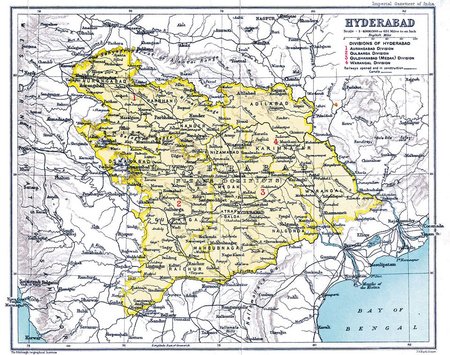
India would, of course end up getting officially colonized by the UK in 1857, and although Hyderabad would remain as a princely state that was simply subordinate to the British Empire, most of the region would end up under direct British control. The Nizam's long rule would in Telangana would also contribute to a more distinct Persian and North Indian-influenced dialect appearing there. In the 19th and earlier 20th under British rule, Telugu poetry would make a resurgence, or the Telugu Renaissance, and there would be a lot of more modern poets once again, starting to incorporate some English vocabulary as well.
However, before the British, there was a brief period of Maratha rule over this area. You may have noticed I haven't mentioned anything about music till now, but this is around the time when the great Trinity of South Indian Music was born in the late 18th century, so I will also mention them before I get to the British Era. 2 of the Trinity members were Telugu and composed mainly in Telugu, namely Shyama Shastri and Tyagaraja.
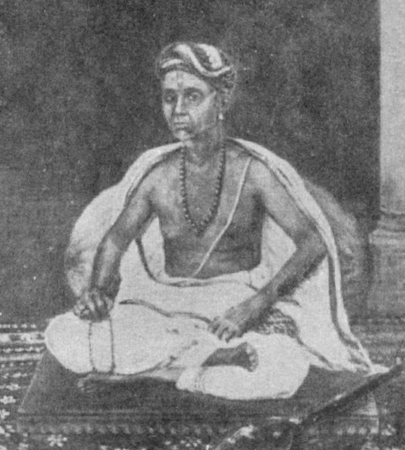
The Father of Modern Telugu Literature would be Kandukuri Veeresalingam, born in 1848, who was also a social reformer, and believed Literature was a way to fight the problems of society. He wrote novels, essays, biographies, and autobiographies in Telugu, such as "Rajasekhara Charitramu", which was inspired by Oliver Goldsmith's "The Vicar of Wakefield". He also wrote and translated numerous plays, many of which were related to the societal problems.
Another of the "Renaissaince" poets, Gidugu Venkata Ramamurthy, would have his Birthday commemorated as World Telugu Day, on August 29. He is most famous for supporting the use of the Vyahavaharika Bhasha, the common or people's language, since it was hard to understand the literary Sanskritized scriptures.
And one more of the famous poets, even though they were many many more I can't mention, was Gurajada Apparao, who was known for writing Kanyasulkam, considered the greatest play in all of Telugu history, which was also concerning social issues. He also promoted the use of local dialects, and wrote songs such as the Telugu Patriotic Song "Deshamanu Preminchumanna".
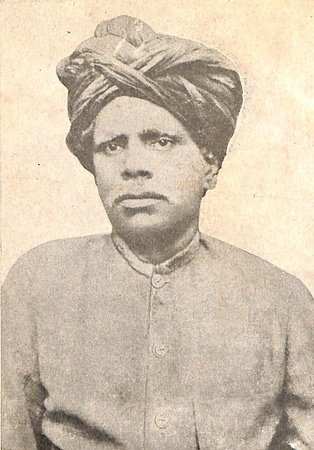
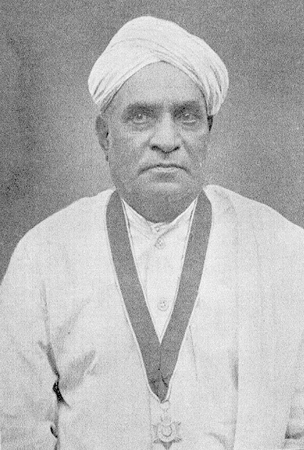
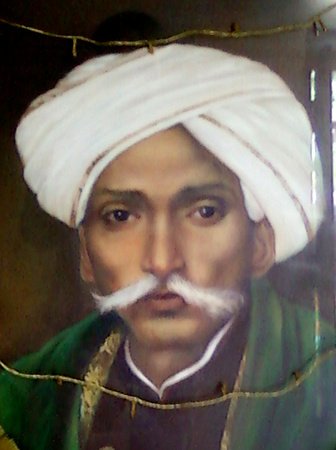
The rest of the Era of British Rule would have many poets like this, and plays, songs and poets, and this continued after independence. With the development of Indian Films, the Telugu film industry would become huge, with many famous actors and songwriters. The first Telugu movie, Savitri, was made in 1933, and today the Tollywood (yes, that's actually its name) industry is one of the largest in India. And that brings us to today...
As I mentioned, Telugu now has almost a 100 Million Speakers, and has speakers around the world, even if it doesn't seem like it. The Telugu population has been immigrating to all corners of the world recently, especially the United States, and it will probably only grow around the world and become more important. However, at the same time, a lot of Telugu vocabulary is being lost as English takes over, and there aren't many large efforts to save native words. Overall, as Telugu goes into the future, it still seems to be becoming more influential, such as in the United States.
did that even make sense? anyway, on to the linguistics section
Linguistics
Before I start this, I should mention I have no real experience studying linguistics and grammar, I just think it's an interesting topic, and since this is my mother tongue, I'll try to explain what I can about some general linguistic topics.
Telugu is a Subject-Object-Verb Language, though in some cases it can be flexible.
Telugu has many interesting linguistic features but one of the most fun, and challenging, is agglutination. You might be familiar with this from highly agglutinative languages such as Hungarian, Turkish, and Finnish, but Telugu also has it to a large degree. If you don't know, agglutination basically means adding more sounds to one word to give more meaning, rather than using different words for it. For example, here is a a string of agglutinative words. (Also, I am using my own romanization with an acute accent instead of a macron because I think it looks nicer)
Interesting, isn't it? 7 words in one language are 1 word in another! This can go even farther but I refuse to write anymore HTML, so let's move on.
Actually never mind, let's do more color coding. This might seem confusing and hard to understand so... Let me confuse you more! In casual speech, a feature common in Indian languages called Sandhi or Fusion is used a lot. This basically means that words can get mixed together if the last sound of one of them and the first sound of the other are compatible, and both are cancelled out or something like that, it's hard to explain
Here is another example:
This basically makes Telugu speech even harder to understand for learners, I'm not selling that this is an easy language very well, you should still learn it plz.
I mentioned a few times about Telugu's Sanskrit and Persian vocabulary, and we can see Telugu's many influences in this casual sentence.
All of these foreign influences makes Telugu very unique. A famous British geneticist named J.B.S. Haldane even said that Telugu would be an ideal national language for India, as it absorbs its vocabulary from all sources.
Sadly, this idea wasn't implemented by the Republic of India, who ended up choosing Hindi as its official language. However, TheNatureThread empire, the successor of India, would finally realize this dream and make Telugu an official language Haldane would be happy ;)
I should also mention the many dialects of Telugu. The Dialects are mainly divided into Andhra, Telangana, and Rayalaseema, with Andhra being the standard. Within these dialects, each city and region will also have its own accent of the dialect. Telangana Telugu is especially different, the speech you would casually here in Hyderabad is half-unintelligible when you first hear it for an Andhra speaker, but like most dialects, you can learn to understand it after just some experience.
Conclusion
So in conclusion, Telugu is a unique language you won't find anywhere else, a unique Dravidian base with ancient Sanskrit flavor, and a hint of foreign Persian and English influence, is the Italian of the East, Telugu.
Thank you so much for reading my long blog about Telugu! I really hope this was enjoyable, and I didn't get too off-topic with history. Jetpunk lo evaraina telugu vallu unnarante cheppandi comments lo! Na telugu quizlu kuda tisukovandi :) (I'm writing in the English script because its so hard to write Telugu on computers) i hope there are telugu people here because then no one will see what i wrote
So do you want to learn Telugu after reading this? I have seen many videos of polyglots and language learners but despite it's huge community and growing importance, I haven't seen anybody who's learn Telugu, but if you want to learn even a bit, I can definitely help :)
Anyways, this was originally supposed to be a blog just about Telugu to teach more people about an underrated, not well-known language, but since I love languages I've decided to make a series! I will make language profiles for languages around the world, and I will focus on languages that aren't talked about as often or just aren't major languages, so don't expect me to do German or Russian. Of course, no matter how many episodes I do, this will be the most special one, and I won't be able to go as in depth with the other ones which I don't speak. I will do one for each UN region and then start again. I have made a few modifications to the UN regions, so the next region I cover will be Southeast Asia-Oceania!
Here are 5 languages to choose from in this region :)
Burmese | Khmer | Javanese | Maori | Hawaiian
I totally didn't copy that format from BigGeographyGuy
Once again, dhanyavaadamu for reading, hope you enjoyed, and I will see you in the next blog, bye!
And before I forget, here are some links you can check out next.

Burmese: IV
Hawaiian: II
Maori: I
Khmer: N/A
Javanese: N/A
Thanks MG! Yes, this will probably be a series though I got a bit tired of it after writing this for so long, so I will probably finish the Indian Cities series, do another quick series, and make a few another random blogs before returning to languages.
And yes, Telugu is hard lol
E sim, quem sabe eu faça. ;)
#TELUGUANDHINDIFEATURED!
no one wants to learn telugu still, I WANT TO TEACH YOU LOLbut it's funYeah. Fun for be looking like a 12-year-old with neuropsychological disorder lol.me reading portugueseI'm not very good at Portuguese pronunciation, but I want to learn it some time, but first I am trying Spanish.
although I think I’m good pronouncinglolhow dare you see the Vijayanagar Empire was greater than the Macedonian or Roman!!!!i didnt say thatthe history portion was a tiny bit longI think Nauruan is a necessity, but I will vote for Maori.
I knew I should have put Nauruan! Next time...
“Hi *chomp crunch munch chomp* there *slurp crunch swallow burp munch chew*!
For the next language, I'll vote for
BengaliBurmese!And I'll add your vote for Burmese :)
after doing 20 more regionsI'll vote for Burmese :)
even if you don't want i will teach youI'll vote Hawian.
It is great that you have so much enthusiasm for your mother tongue, if only people cared more about the language they spoke maybe all these rich vocabularies wouldn't be lost to trendy English words (even if throwing in English words saved me when speaking Nepali, haha).
Looking forward to the next one, I vote Burmese! Great to see more language content here on Jetpunk :)
I will definitely make more language content! I love languages but I only speak 2. Ahora estoy aprendido Español, espero que poderé hablarlo algun día.
I will add your vote, seems clear I will do Burmese next!
And if you ever want to learn another Indian language, I would be happy to help you with Telugu :)
If I had to choose, I would say Javanese next .
I can start a group with you if you want to practice :)
చాలా బాగా రాశారు ఈ వ్యాసం! మన భాష గురించి చాలా విషయాలు తెలుసుకున్నాను.